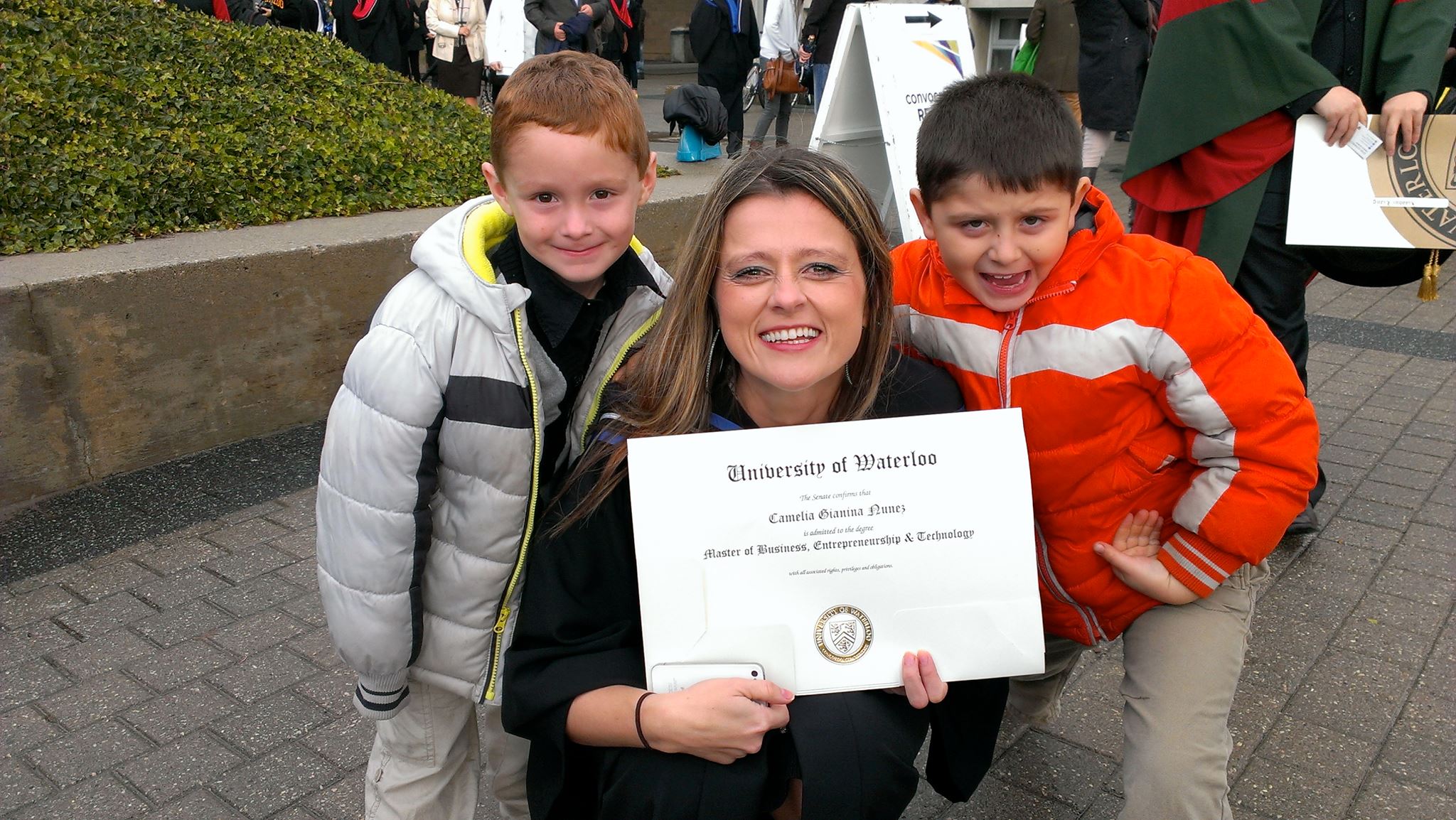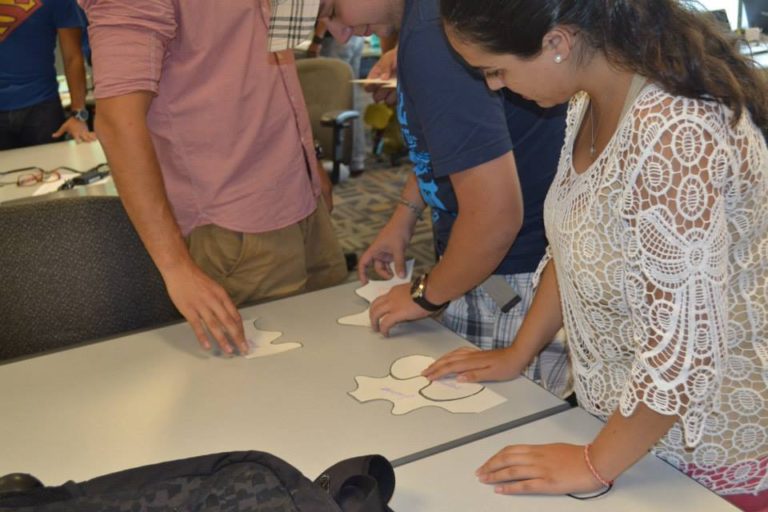I was born into a bilingual family so from birth, my parents each spoke to me in their own language. To this, I attribute my interest and passion for learning new languages and discovering new cultures. My dream as a child was to become a language teacher and that was the path I embarked on (initially, at least). I was fascinated with the process of learning new languages and decided I was going to study linguistics and become a prof. So there I was in the third year of my PhD in Hispanic Linguistics, working on my dissertation, which like every dissertation was hyper focused in one area. If you’re curious, I was studying how adults acquire definite articles in Spanish (el, la), when they learned Spanish after English, and the articles in their native language were either non existent or very different.
But, as the above title would imply, the point of this article is not to talk about multilingualism or language acquisition.
Why am I telling you this, then? Because ironically, my PhD in Hispanic Linguistics didn’t lead to me becoming a prof at a uni. Instead, I co-founded an EdTech startup which gave language learners on-demand access to a conversation partner, powered by AI.
No, I did not switch to a Computer Science program to learn how to do that. Instead, I studied Entrepreneurship. I knew a lot about how we learn new languages and what the challenges are. So when I met my co-founder, a PhD in Computer Science I realized that if we brought our individual expertise together we could have a much bigger impact than I would ever be able to on my own, by teaching one class at a time. It was then that I truly understood the power of technology, but also that of entrepreneurship. At this point I had a technical co-founder but I didn’t know much about commercializing this idea and I knew especially little about tech startups. It decided I had to ‘learn entrepreneurship’ and I enrolled into a masters program focused on business and entrepreneurship. The best thing about this masters program was that it had a hands on component as part of the academic requirement to complete you degree. This made it possible for me to work on my business idea while I was also getting a degree. Pretty awesome, right? Again, if you’re curious, I am talking about the Masters in Business, Entrepreneurship and Technology offered by the Conrad School of Entrepreneurship and Business at the University of Waterloo.
So there I was, a linguistics PhD student on a leave, enrolled in a masters program trying to learn how to turn research into a product that would benefit millions of language learners around the world. To say I learned so much during this time would be a serious understatement. This experience was a complete turning point in my career.
We did end up commercializing our research and our product was used by language profs in a few different universities in Canada and the US. I led our company called Milao Language for ~3 years and although it did not reach the market adoption we hoped it would, this experience opened my eyes to a whole new world of opportunities.
I can say with confidence that this experience has put me in the diver’s seat of my own career.
What I learned by studying Entrepreneurship?
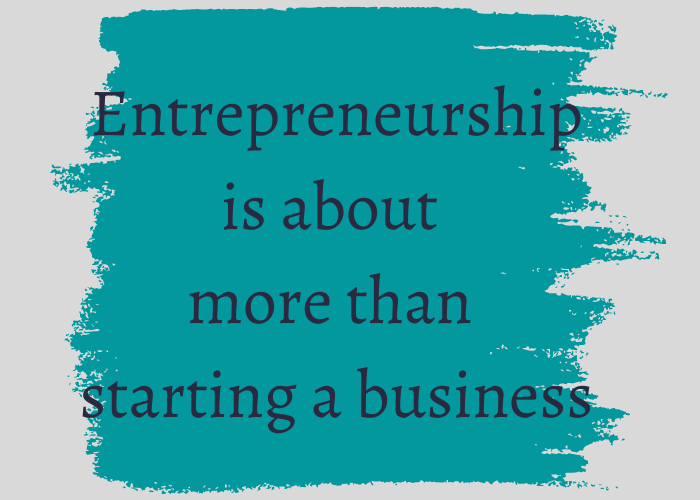
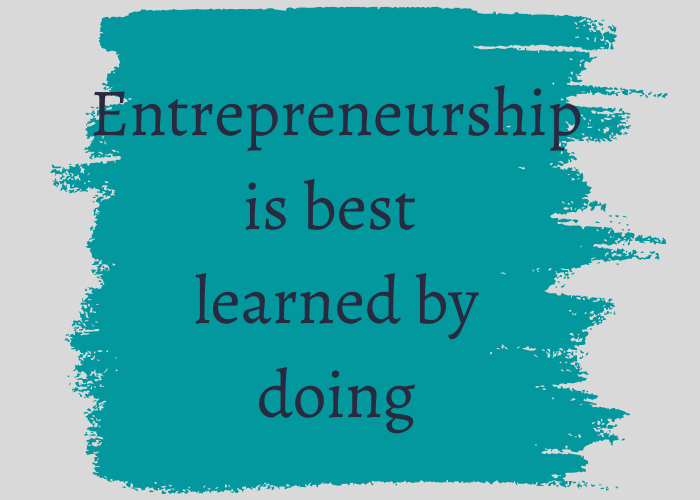
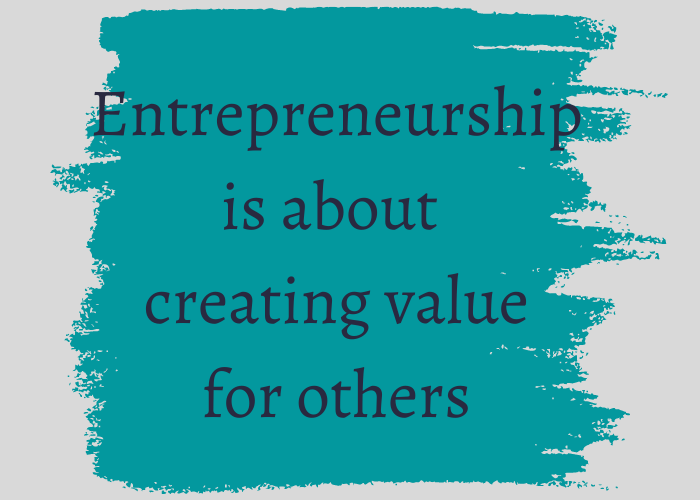
I dropped out of my PhD and didn’t become a prof. Instead, I decided to diversify my income streams by trying new things. I am passionate about education and learning, so most of what I did, remained in this sphere. I always had a teaching ‘side gig’. I continued to teach Spanish and eventually I had the opportunity to design my own entrepreneurship course, which I have now taught to over one thousand students. I also co-led a startup incubator and launched an entrepreneurship program to support university students with entrepreneurial inclinations. I founded another company, which I have been running as another one of my side gigs for the past six years and I am always on the lookout for the next opportunity, so I’m sure more is to come.
Beyond starting a business
Although for most people, the first thing that comes to mind when speaking of entrepreneurship is business creation, entrepreneurship is about a lot more than that.
The so called entrepreneurial skills that it takes to start and run a business, are transversal and can be applied to so many areas of our life.
For example, my startup experience has taught me that I’m the founder of my own career as well, and I am in charge of taking it in the direction I want to take it.
I knew building an on demand conversation partner for language learners was going to be helpful for so many people. I loved the feeling of bringing value and solving an important problem through my startup. That didn’t work out the way we wanted to, but I wanted to continue to nurture that ‘feeling’ by putting this idea of creating value for other people at the centre of my personal life and career. I can look for value-creating opportunities in my personal life as well as outside of it and of course take action. Finding ways to create value for those around us leads to a life of purpose and endless learning.
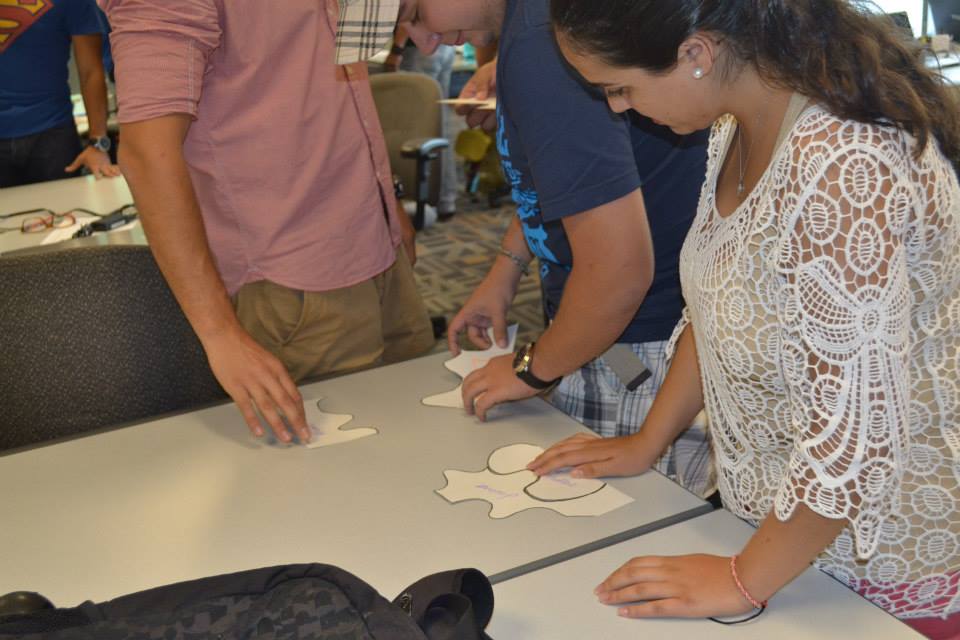
What Next?
I’m clearly a champion of entrepreneurship in education and I try to communicate the value of entrepreneurial thinking to my students, my friends, my children and really whoever will listen.
That said, something I’ve always wondered about is why entrepreneurship is not adopted at all levels of the education system. I don’t mean teaching children how to start businesses, necessarily. What I mean is teach with the purpose of enabling learners of all ages to identify opportunities, take action and find ways to build something of value for those around them.
Entrepreneurship in education has worked fairly well in the form of elective courses offered in higher education (like my Masters degree). The reality however, is that the relevance of entrepreneurship in education has primarily been measured from an economic point of view (ie. startup creation). This has been off-putting for many educators and it is a big reason why it hasn’t had the reach it could have. While the impact entrepreneurs have on the economy and our world is not to be taken lightly, when it comes to education, we need to adopt a much broader definition of what teaching entrepreneurship means.
I’m convinced that incorporating entrepreneurship across all education levels (from pre-school to adult learning) would have an incredible impact not only on our economy, but our society as a whole. As a mother of three wonderful humans and as anyone who cares for children, my wish for them is to live a life of purpose. I believe an entrepreneurial education can help them achieve that by teaching them how to successfully navigate uncertainty and thrive in a reality of constant and rapid change.
So, what am I up to next? I am on a mission to make education more entrepreneurial. As it turns out there are many people out there who have dedicated their careers to researching and looking for answers to this very question. They’ve also developed some exciting frameworks around what is commonly referred to as entrepreneurial education.
My goal is to keep learning and for now I took action by launching Grow Entrepreneurial, an instagram community and bi-weekly newsletter where entrepreneurial kids and teens inspire others to take action and create value for our world.
But stay tuned, I have more ideas!

